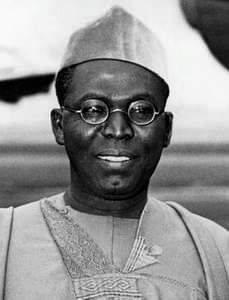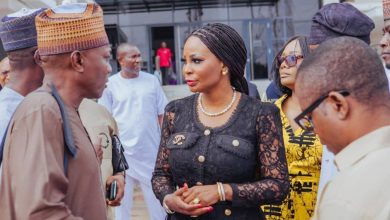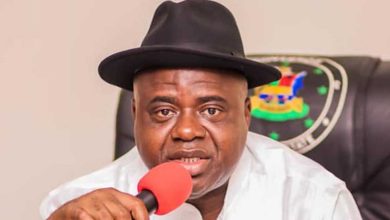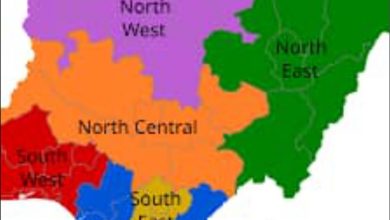
“Those we underestimate in life can often serve as guides to our lack of vision” – Stewart Stafford
It is my abiding reading pattern to adventure voraciously into the past. Incidentally, recent moments of rumination on some instructive and enviable facets of Nigeria’s socio-economic metamorphosis and the visionary actors that made things happen in their eras and regions have got me thinking inconsolably about the Niger Delta and the chronic lack of heroes to champion its cause openly and determinedly.
This burden may have been made especially heavier by my cumulative knowledge and frequent trips across the length and breadth of Niger Delta States, from the Paradise City of Calabar down to the “Heartbeat of the Nation”, which Edo State is otherwise known, down into the oily but stinking creeks of Bonny Island, upon which experience I safely can say I have seen a lot to make my case progressively worse. It follows that each time I contemplate the Niger Delta’s endowed lands against its manifest antithetical socio-economic status in contemporary discourse, I cannot but pity and query the aborigines at various levels of leadership and ideological pedestals.
In the depths of my worries, I remember with jealous fondness the rare foresight and socio-economic foundation laid, for instance, by a pathfinder like Chief Obafemi Awolowo for the Western Region. Because he saw beyond the present and did not think of personal empires at home or in the Diaspora, it appears to have mattered little or nothing to this great visionary, Nigeria’s first Leader of Government Business and Minister of Local Government/Finance, who also would become pioneer Premier of the Western Region that the west was subsisting in a federal government structure, like it tangentially could be said of the Niger Delta today, yet he schemed and dared and made a lasting difference on that geo-political zone.
Just within five to four years, between 1954 and 1959, with foresight and clear sense of direction, Awolowo stood out not just as a political leader but economic emancipator of his people with tall landmarks that would outlive him, not depending solely on what was filtering in from federal government allocation for the region in those non-oil days, when agriculture was the mainstay of the economy like oil today is.
By superior logic and clairvoyance targeted at rapid empowerment of his people, Awo introduced socio-economic initiatives and reforms that completely revolutionalized the West and made them pioneers and authorities in practically everything in comparative human index that holds the key of quality existence in today’s Nigeria and beyond – scholarship, infrastructure, human capital, social amenities and industry.
Among such altruistic mementoes is the Cocoa House of 1965, the “Ille Awon Agbe”, the tallest building of 26 storeys then in tropical Africa, which later transformed into the Odua Investment Company Limited, which had to be established in the West because there was somebody in the west, precisely in Ibadan, to play the economic catalyst. Because the footprints were designed to last for generations, although the Farmers House was gutted by fire on January 9, 1985, on its ashes had risen and still functioning till date the Wemabod Estates Limited – all on account of one man.
Awo made these possible without total dependence on centrifugal politics of federation accounts but from proceeds from commodities such as cocoa, rubber, timber, among others that the west enjoyed comparative advantage with places like today’s South/South that was so rich in palm oil that it was collectively referred to as Oil Rivers Protectorate as at 1891, which necessitated that strong merger with the Royal Niger Company on January 1, 1990, to form the Southern Nigeria Protectorate.
So what were the proceeds from the South-South area used for that would today draw comparison with what Awo achieved in the West that the Yorubas all refer to with nostalgia and pride? The bottom-line was vision, well-scripted and spearheaded templates, and commitment and ability to think outside the box of personal comforts and political genetics.
Of course every region had premiers. So the take-home gist in this retrospection is that not all premiers of Awolowo’s days who enjoyed equal status, opportunities and concomitant availability of natural and material resources impacted on their regions and people within the time like the iconic and provident sage, Obafemi Awolowo did. Without really minding the federal government, without being deceived or cajoled by chauvinistic politics of the time, without trading excuses and blames, the great Awo ceased opportunity and used what he got to get what he wanted for his region to the envy it is today.
In 2019 alone, the combined budgets presented by the six Niger Delta State governors ran into some uncountable trillions. Tagged “Budget of Industrialization for Poverty Alleviation”, thrifty Akwa Ibom Governor presented N670.7billion estimate for 2019. His brother from Cross State, the ostentatious Prof. Ben Ayade, presented 1.043trillion “Budget of Gabalistic Densification”; while the loquacious Nyesom Wike of Rivers State called his N480.4billion 2019 estimates, “Budget of Sustainable Growth and Development”.
From Delta and the other two states we got nothing less. The puritanical Ifeanyi Okowa of Delta won truckloads of applause when the House of Assembly signed into law the 2019 budget of N390.3bilion christened “Budget of Sustainable Growth”. For uproarious Godwin Obaseki of Edo, it was “Budget of Socio-Economic Inclusion” with the sum of 175billion; while obtrusive Seriake Dickson prophetically named his N299billion 2019 estimates, “Budget of Final Completion”. These were huge sums put together. And this has been the competitive trend since 1999.
On Wednesday, May 31, 2017, the then Minister of Niger Delta, Usani Uguru Usani, at a Federal Executive Council (FEC), disclosed that a technical audit on the Ministry of Niger Delta (MNDA) has shown that it spent N423billion between 2009 and 2015. This would result in annual average of 71billion, besides complementary income from oil companies and other sources. Further details according to the minister indicated that 427 projects were awarded during the period; with project execution rate of 12%; average rate of project completion standing at 5 years; and impact rate of 8%.
Available data also shows that within the four years of 2016 to 2019, the Ministry of Niger Delta had been allocated budgets running into trillions in the following order: 67.3b (2016); 34.2billion (2017); 53.8billion (2018); and 35.9bilion (2019) respectively. On the same plank, from 2014 to 2019, the Niger Development Commission (NDDC) has had N322.6billion (2014); 299.6billion (2015); and 241.7billion for 2016. Other years had 364.4billion (2017); 346.5billion (2018), and 65bilion in 2019 as confirmed budget allocations.
Yet, on assumption of office, the glamorous and eclectic Sen. Godswill Akpabio, through his controversial Interim Management Committee, discovered that there are at present about 300 uncompleted and abandoned projects by the NDDC, with aggregate amounts in the region of 3trillion owed contractors, real and ghostly. Usani had capped his earlier disclosures with a sanctimonious regret: “To find that N423bilion had been expended in the region with the type of results we see shows that there is something tangibly and obviously wrong”. if Usani had called what was wrong “a regional curse” he wouldn’t have been wrong.
Unlike Chief Obafemi Awolowo, whatever is generally observed to be wrong with the Niger Delta region has much in common to share with the attitude of governors and stakeholders from the region. Carelessly bereft of regional vision and ideological integration, content with crumbs and soured promises, they always see the region as sacrosanct political setup at the mercy of the federal government. None of the governors think or act like the great Awo.
From 1958, let’s pretend to forget that oil was actually discovered in Oloibiri as early as 1956, they have been, right from the colonial years of Queen Elizabeth, six interventionist modules flaunted as vehicles by successive administrations in the country, military or civilian, aimed at growth and development of the Niger Delta area.
We have had the Niger Delta Development Board (NDDB -1958) by Colonial Masters; Niger Delta Development Committee (NDDC-1980) by President Shehu Shagari; and Oil Minerals Producing Areas Development Commission (OMPADEC-1992) by Gen. Ibranim Babaginda. Following these were Petroleum Trust Fund (PTF-1996) of Gen, Sanni Abacha; Niger Delta Development Commission (NDDC-2000) by President Olusegun Obasanjo; and Ministry of Niger Delta Affairs (MNDA-2008) by President Musa Yar’adua.
Today, it remains one of the saddest ironies that some regions in the country without oil can boast of better legacies and sweeter testimonies from their complete dependence on income from the Niger Delta. A school of thought has argued that Abuja is today a world-class Capital City largely on account of two major factors: 0ne, proceeds from oil sales especially during the oil boom of the Gulf War period. Two, generational obedience to a well-scripted northern agenda by Gen. Ibrahim Badamosi Babaginda who knew he must catch up with the opportunity to move the seat of Government from the Doran Barracks of Lagos to Aso Rock of Abuja on December 12, 1991 as had long been muted since 1976.
If IBB hadn’t ceased the golden chance and played the hero’s part, the argument insists, Lagos may still deservedly be Nigeria’s Capital and that section of Niger State that Abuja is majestically situated might still be an impenetrable forest of wild beasts. How short it took for the FCT to be transformed into a global metropolis therefore remains a case study of how champions can change the course of history on shared and clearly defined developmental formula!
Then comes the creeping question: What would have been wrong if some or all the Niger Delta State governors by some concord of purpose and vision for the socio-economic emancipation of the Niger Delta region pull up resources, even less than 2% of their huge annual budgets, to create at least one functional company that could have direct and collateral effects on the population of the area? Some have pointed to the blind and crab-syndrome politics of atomistic enclaves that Niger Delta stakeholders play as a contagious disadvantage.
Maybe to further worsen my worriment, I am persuaded to believe that Goodluck Jonathan’s years as President was perhaps the worst years for the Niger Delta region, even as he openly admits in his unending redundant apologia. This is a complex that must be broken if the region must move beyond where hegemonic politics of mischief always would love to have them!




